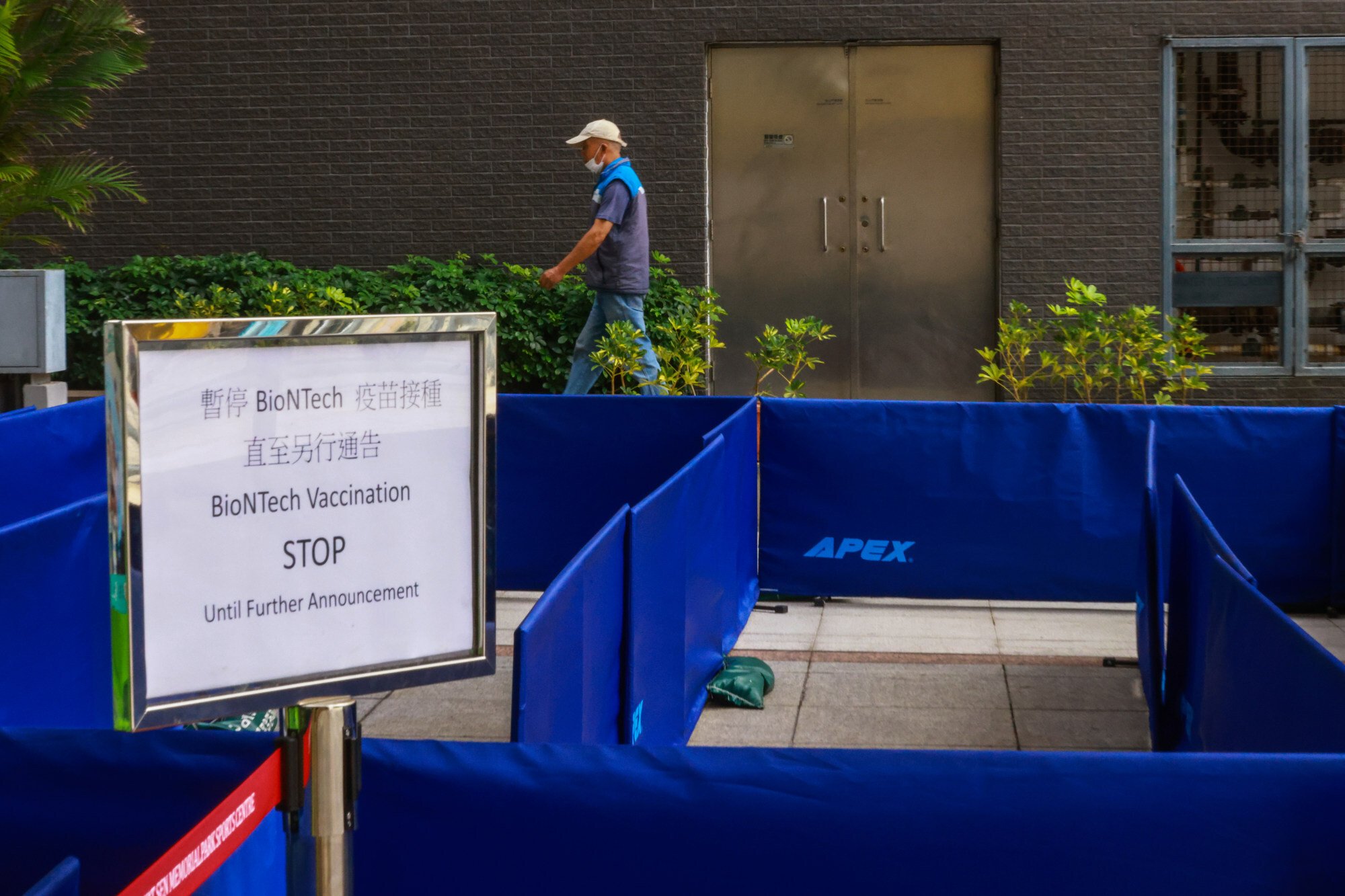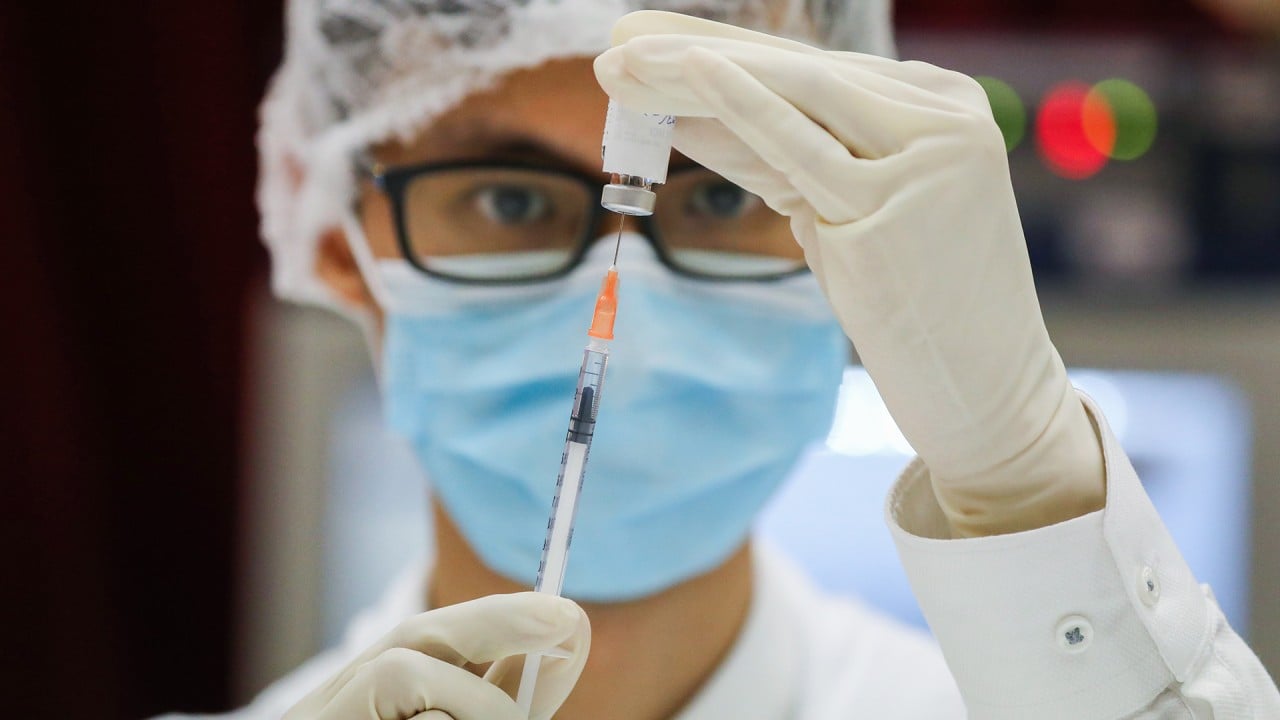
Don’t put cart before horse with incentives to boost vaccination; what Hong Kong needs is a definite timeline for ultimate goal of herd immunity
- Cautious approach to getting second jab is understandable in these uncertain times
- But race to get people inoculated is really a race to economic recovery
Those who are worried by the sudden interruption of the BioNTech vaccine roll-out because of packaging defects may continue to wait and see a little longer.
The good news is that an investigation by the manufacturer and its mainland Chinese distributor has found no systemic problem in the entire supply chain, and the vaccines already supplied to Hong Kong have been judged to be safe, which means the roll-out may resume within this week.
The bad news is that authorities are still facing an uphill battle to get most of the population vaccinated amid a low take-up rate, first affected by lingering suspicion about the Sinovac vaccine and now suffering a further blow from the BioNTech suspension.
Hopefully, science and sensible judgment should prevail at this time of confusion.
Realistically, none of the available vaccines worldwide, Chinese or Western made, is 100 per cent free of side-effects, nor do they guarantee 100 per cent immunisation from Covid-19.
The latest confirmed case in Hong Kong was a woman who tested positive days after she took her first BioNTech shot. Authorities suggested she was infected before she was vaccinated, but whether that is the case or not, it’s common sense that vaccination is for protecting oneself as well as the people around, rather than for curing a specific disease.
Hongkongers are lucky to have access to free vaccines and the freedom to choose. Many are willing to be vaccinated for the sake of their own health as well as for the public good. But it’s also human nature to be cautious in such uncertain times, and there is also a trust issue when it comes to both confidence in the vaccines and taking the government’s advice.
Hong Kong exploring ways to incentivise coronavirus vaccine take-up: pandemic adviser
Still, with speed, efficiency and transparency, a successful vaccine roll-out can surely boost trust in the government.
That explains why various “incentives” involving both the private sector and the government have emerged to boost the take-up rate, from dining discounts and freebies to suggestions that leave should be awarded to those who take their jabs. Officials have also held out hope that social-distancing rules may be relaxed and floated the possibility of reopening the city’s border with the mainland.
But incentives are the means to an end, not the goal itself; let’s not put the cart before the horse. People should essentially be getting vaccinated for the sake of public health, not for material reward or social convenience.

That touches upon the fundamental question of why governments all over the world are pushing ahead with their inoculation schemes.
The pandemic that began in late 2019 started an immediate international vaccine race, with China, the US, Russia, and European countries jockeying to take the lead. That has now morphed into an inoculation race, which really is a race to economic recovery.
We see mainland China rapidly expanded the scale of vaccination, with a target of having 570 million – or more than a third of its population – inoculated by July. US President Joe Biden has made the battle against Covid-19 his top priority and claimed “hope is on the way” by doubling America’s vaccination target to 200 million people in his first 100 days in office.
In Hong Kong, only about 6 per cent of our 7.5-million strong population has been vaccinated so far. The government last week rightly lowered the age threshold to make everyone aged above 30 eligible to receive the jabs.
There is nothing wrong with incentives, but when confidence is shaky, what we need is a scientific and clear government timeline with the ultimate target of achieving meaningful herd immunity. That is the precondition for jobs to come back and the city to move forward.


